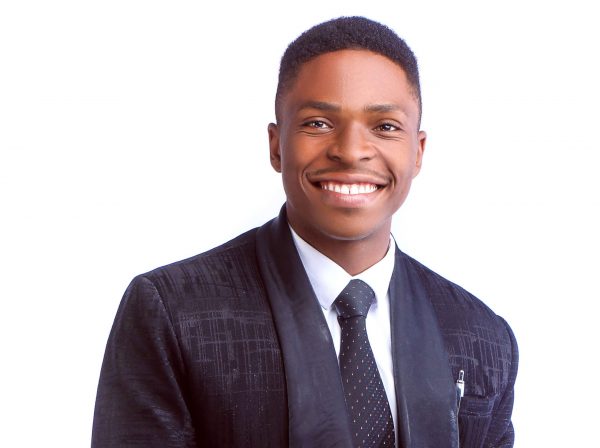Meet Chibunna: Regional Coordinator for Sub-Saharan Africa
Student Energy’s Global Youth Energy Outlook is led by a team of 12 youth Regional Coordinators who are working together to reach a total of 50,000 young people around the world in 2020 and 2021. As they engage young people in their region through a two-phase research process, the Outlook’s Regional Coordinators will be gathering insights and recommendations to develop the final Outlook report, with key findings set to be shared at COP26 in 2021.
In this interview series, we get to know each of our Regional Coordinators in-depth:
Introduce yourself and where you come from?
My name is Chibunna Ogbonna and I come from Okaiuga Nkwoegwu, Umuahia, Abia State in South-Eastern Nigeria. I was born on Februrary 13, 1997. I always wanted to explore beyond my hometown which led me to attend Secondary school at Air Force Military School, Jos Plateau State in Northcentral Nigeria. There I served as the President of the Mathematics Club; President, Fellowship of Christian Students, and the Intelligence Marshall of the Military school. I gained admission to study Chemical Engineering at Federal University of Technology, Owerri in 2015. In my sophomore year, I co-founded Renewcykle (registered as Renewcycle Energy Limited), a clean energy company with two of my engineering colleagues. Currently, I am completing my final year in college and would love to further my studies to obtain a Master’s degree in Renewable Energy: engineering, policy and management, and a Master’s in Business Administration and Economics. I speak at various local and international conferences on sustainable development and eenewable energy. I aspire to be a global leader, change-maker, philanthropist, and nation-builder. I enjoy traveling to new countries and meeting new people and diverse cultures.
Why are you passionate about energy and/or climate action?
In my senior year at the Military school, my computer studies teacher, Mr. Obinna always allowed students to surf the internet after each computer practical session despite being against the rules of the school at that time. It was a risk that gave me the opportunity to learn about climate change, the causes, effects, and possible solutions. I became engrossed in the subject matter since I was a science student and understood the implications of the climate crisis. Defying the advice of some teachers to pursue a career in medicine, I changed my mind to get involved by studying a course in the University that could equip me to be a solution. In 2015, coincidentally, the Paris Agreement was signed and the Sustainable Development Goals were also signed into action. Being a very spiritual person, I could connect the dots as a divine calling to tow the path of Sustainable Development. My first article on climate change was “The Agony of Mother Earth” which was published in the Junior Airman Magazine, 2014 edition during my Passing out Parade and graduation from Air Force Military School, Jos. I attended renewable energy and sustainable development conferences within and outside the University and eventually represented Nigeria at the first IRENA Youth Forum in Abu Dhabi, United Arab Emirates in January, 2020.
What do you think are some of the biggest challenges to transitioning to a sustainable energy system in your region?
From my research and studies, I have come to learn that the biggest challenges to transitioning to a sustainable energy system in Sub Saharan Africa are: lack of awareness and education to debunk cultural perceptions and myths about the working principles of the sustainable energy agenda, lack of political will to divert subsidies from fossil energy investments to sustainable energy investments, lack of enabling environments for sustainable energy investments such as stringent policies, corruption and predator taxing of new businesses. All these lead to increased cost of deploying sustainable energy technologies despite global falling costs.
What aspect of the energy system in your region do you plan to learn more about?
I plan to learn more about how to influence energy policies to divert subsidies to sustainable energy investments and reduce taxation on Sustainable energy businesses, how to explore new energy markets and opportunities and how to build networks of financiers and funders to attract investments for sustainable energy deployment to the most vulnerable and underserved. For Sub Saharan Africa, I believe our priority is how to achieve cheap access to sustainable energy for electricity, cooking, and industry; and, how this will translate to social prosperity and improved quality of life.
How did you first get involved with Student Energy?
Amazingly, this is my first time getting involved with Student Energy serving as the Regional Coordinator for Sub Saharan Africa, Global Youth Energy Outlook. I am so excited and humbled by the opportunity to represent my region in this capacity and to contribute to the first Global Youth Energy Outlook. I look forward to more roles in the future representing Sub Saharan Africa.
